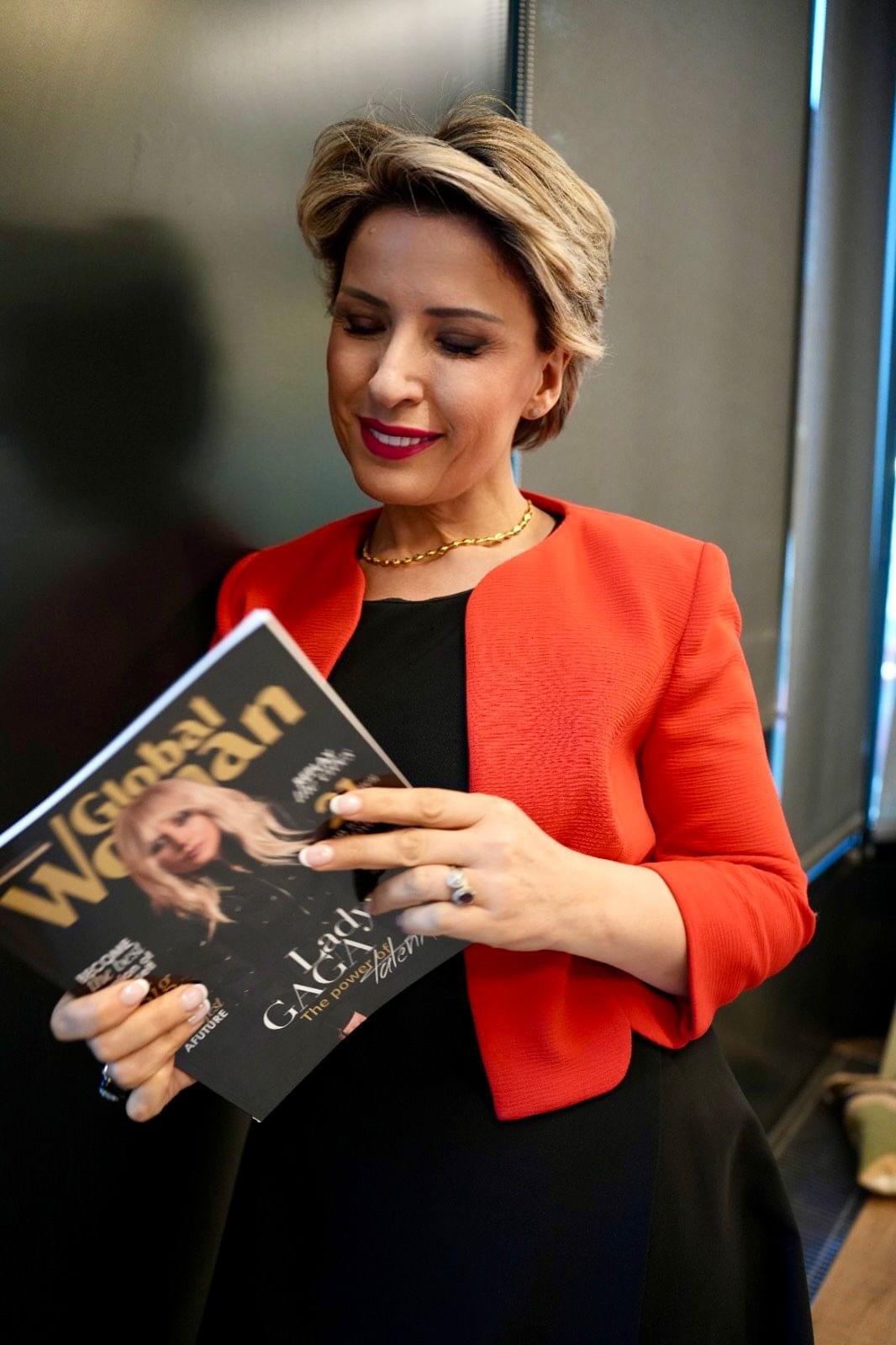Andrea Duristova – Speaking other languages opens a gate to a different world
By Fardous Bahbouh
Andrea Duristova is on a mission to help people communicate in various occasions and locations: courtrooms, prisons, hospitals, and weddings.
Andrea Duristova is a linguist working as a Public Service Interpreter of Slovak, Czech and Spanish in London. She specialises in legal interpreting and works mainly at courts, law firms, police stations, prisons, probation offices and social services. In addition to interpreting, she teaches Community Interpreting and Met Test courses and she helps in organising workshops and seminars for interpreters. Andrea holds a Master’s Degree in Translation and Interpreting from Comenius University in Bratislava and a Diploma in Public Service Interpreting from the Chartered Institute of Linguists. She is currently preparing for her exams for a postgraduate course in conference interpreting.
I first met Andrea at one of my Arabic courses. She stood out as a funny, talented and a kind person. She likes learning languages, exploring different cultures, reading the Bible and building bridges among different cultures and religions. Andrea is very inspirational, hard-working and super organised. She has been self-employed for over seven years. Andrea always shares tips and advice on being self-employed with friends and colleagues. She told me “I admire all people who love unconditionally, who serve others and who believe that if the job is worth doing, it is worth doing well.”
When did you come to London and how does its diversity influence your life and passion for languages?
I came to London for the first time during my gap year at university. From the very beginning, I was fascinated by the variety of nationalities and languages. I was listening to all the conversations in different languages on the bus and on the tube, trying to identify them. I also discovered the beauty of the British, English, and some of the British values. After an amazing year, I returned to Slovakia to finish my studies. I graduated in 2007 and came back to London and started working for the British Council
there are so many similarities between our cultures. I wanted to learn the language and to utilise my skills to building bridges between the Christian and Muslim worlds.
When did you first notice your interest and talent in languages?
I was interested in languages from a very young age. My primary school was specialising in languages. I was among the first generation in Slovakia who were learning English, and not Russian! I started learning English at the age of 9, German at the age of 11, and Spanish at 14. My father thought it would be a good language to speak in future. He was right! I have also started learning Arabic after my very positive experience in Jordan. I loved how friendly and welcoming the local people were. I was also fascinated by Arabic sounds that do not exist in Slovak. I also realised there were so many similarities between our cultures. I wanted to learn the language and to utilise my skills to building bridges between the Christian and Muslim worlds. I have learnt that if you speak the language of the person you want to talk to, you will see, hear, and feel them in a different light.
Tell us please about your experience working as interpreter in various contexts.
I absolutely love interpreting, so I enjoy interpreting in almost every context. In public service interpreting, you offer your services to assist if there is ‘a problem.’ For example, a person needs your help when s/he is in pain in hospital awaiting an operation, or giving a testimony in courtroom. These situations could be stressful and emotional. In addition to language differences, the interpreter should be aware of different cultural backgrounds as well as life experiences and expectations of people involved in the communication.
I do not only interpret the language, I also try to convey the solemn, joyful and moving tone of the speakers addressing the couple on the day.
Personally, I like interpreting at weddings, as they are happy and cheerful occasions. I have interpreted at English/American/Australian and Slovak weddings and I found them to be the happiest interpreting experiences. I believe that I have responsibility to help make the wedding day the most special day for the newlyweds. I do not only interpret the language, I also try to convey the solemn, joyful and moving tone of the speakers addressing the couple on the day.
You also train people in interpreting and intercultural communication. How would you describe these experiences?
I have delivered community-interpreting courses. I have also prepared students to work at police stations and in courts. It is very important that people understand that there is more to interpreting than speaking languages. If you want to work as an interpreter, you need to be aware of what are the values and beliefs of people you interpret for. It is also important to understand that no culture is superior to another. We are simply different. I strongly believe that only in the interacting with people who think or act differently to us, we can truly find out who we are and who we aspire to be.
What are the advantages/disadvantages of being self-employed linguist? What does it take to be successful?
I really enjoyed being self-employed. I work with numerous agencies. I absolutely love the thrill of travelling, meeting new people, and learning new things every day. The great advantage is that you can organise your day. I normally split my week between interpreting, teaching, translating and doing admin work. It gives you a sense of freedom to choose what you want to do and how you want to do it. It also pushes you to continuously look for new opportunities and to build your own network of clients.
On the other hand, if you are passionate about what you do, you may easily find yourself working around the clock and you may end up putting yourself under unnecessary pressure. I believe that to be a successful self-employed interpreter, you need to be equipped with good organisational and people skills, you need to be prepared to constantly work on improving your skills and you simply must love your job. If you love what you do, you make yourself happy and if you are happy, you make everyone around you happy.
Tell us a funny or embarrassing thing that happened to you while working as an interpreter.
Sometimes, people tend to confuse what the interpreter says, and what other people say through the interpreter. My favourite story was in a hospital where I was asked to assist a pregnant lady who was having an ultrasound scan. The lady was lying on a couch while we were looking at a baby in her womb on the screen. When the doctor asked if she wanted to know the sex of her baby, she was very excited and said “yes please”. The doctor said that she will have a baby boy. Her immediate question was “and how do you know?” and I interpreted her question to the surprise of the doctor. In response, the doctor gave me a suspicious look and addressed me directly. “Madam Interpreter, considering your age, I would think that you know how I know that it is a boy.” Then he pointed at the screen at what is a clear distinguishing feature in boys compared to girls. I simply smiled, interpreted the bit about the ‘distinguishing feature’ and looked at the blissful face of the mother-to-be on my side.
Have you found love? Do language and cultural differences present a challenge or add a special value to the relationship?
I have found the love of my life. My partner is Portuguese and he comes from a lovely island – Madeira. I certainly believe that our languages and cultural backgrounds add a very special value to our relationship. We base our relationship on our faith in God, and this is a great advantage while facing the challenges of our life journey. I plan to start learning Portuguese soon and my partner has started learning Slovak. I do admire him a lot as Slovak is a difficult language to learn. Our wish is for our children to speak both of our mother tongues. We believe that speaking other languages opens a gate to a different world. We would like to open at least two gates for our children.




